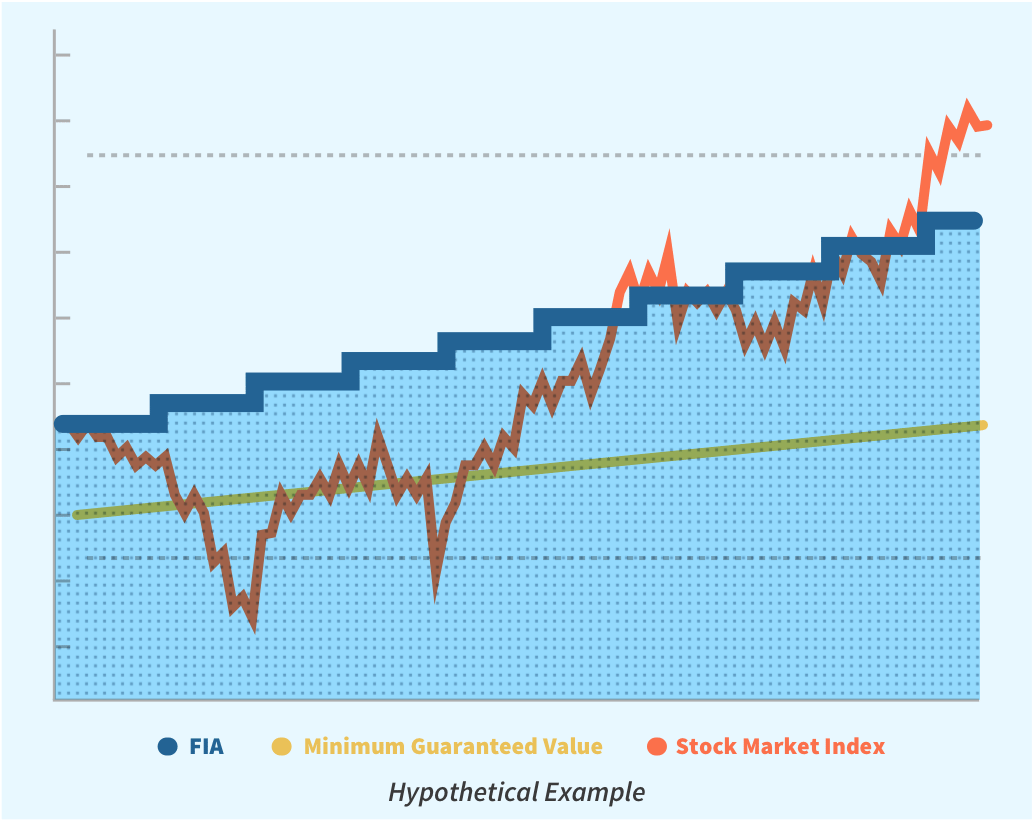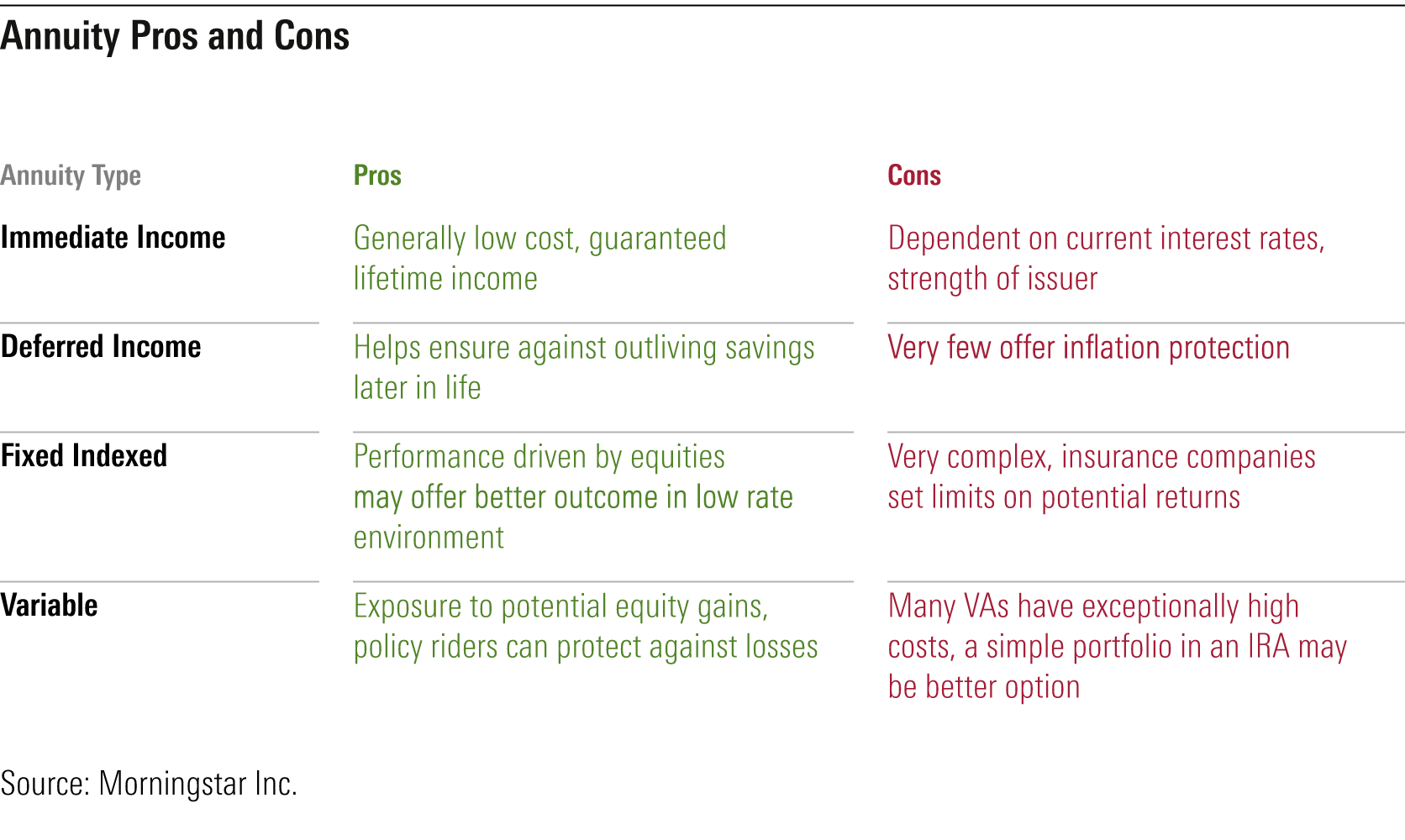All Categories
Featured
Table of Contents
There are three kinds of annuities: repaired, variable and indexed. With a fixed annuity, the insurance provider guarantees both the price of return (the rate of interest) and the payment to the capitalist. The rates of interest on a fixed annuity can change with time. Often the passion price is dealt with for a number of years and after that modifications periodically based on current rates.
With a deferred fixed annuity, the insurer concurs to pay you no less than a defined price of passion as your account is expanding. With an instant set annuityor when you "annuitize" your postponed annuityyou get an established set amount of cash, generally on a month-to-month basis (comparable to a pension plan).
While a variable annuity has the benefit of tax-deferred growth, its yearly expenditures are most likely to be much greater than the expenses of a normal shared fund. And, unlike a fixed annuity, variable annuities don't supply any kind of guarantee that you'll earn a return on your investment. Rather, there's a danger that you can in fact lose money.
Highlighting the Key Features of Long-Term Investments Key Insights on Your Financial Future What Is Variable Annuity Vs Fixed Indexed Annuity? Advantages and Disadvantages of Annuities Fixed Vs Variable Why Choosing the Right Financial Strategy Is a Smart Choice Fixed Annuity Or Variable Annuity: A Complete Overview Key Differences Between Different Financial Strategies Understanding the Rewards of Fixed Index Annuity Vs Variable Annuity Who Should Consider Variable Vs Fixed Annuity? Tips for Choosing the Best Investment Strategy FAQs About Annuity Fixed Vs Variable Common Mistakes to Avoid When Choosing Variable Annuity Vs Fixed Indexed Annuity Financial Planning Simplified: Understanding Fixed Vs Variable Annuity Pros And Cons A Beginner’s Guide to Smart Investment Decisions A Closer Look at How to Build a Retirement Plan
Due to the complexity of variable annuities, they're a leading source of investor problems to FINRA. Prior to acquiring a variable annuity, very carefully read the annuity's syllabus, and ask the individual selling the annuity to explain all of the item's attributes, riders, expenses and limitations. Indexed annuities typically offer a minimal surefire interest rate incorporated with a rate of interest rate linked to a market index.
Comprehending the features of an indexed annuity can be complicated. There are several indexing approaches companies utilize to determine gains and, due to the fact that of the range and complexity of the approaches used to credit report rate of interest, it's difficult to contrast one indexed annuity to another. Indexed annuities are usually categorized as one of the complying with two kinds: EIAs offer a guaranteed minimum passion price (normally a minimum of 87.5 percent of the costs paid at 1 to 3 percent rate of interest), in addition to an extra rate of interest connected to the performance of several market index.

Conventional capitalists that value security and stability. Those nearing retirement that intend to sanctuary their properties from the volatility of the stock or bond market. With variable annuities, you can invest in a range of safety and securities including stock and mutual fund. Securities market performance figures out the annuity's value and the return you will receive from the cash you invest.
Comfy with fluctuations in the stock exchange and desire your financial investments to equal rising cost of living over a lengthy period of time. Youthful and wish to prepare financially for retired life by enjoying the gains in the supply or bond market over the lengthy term.
As you're developing your retirement cost savings, there are several means to extend your money. can be especially useful financial savings tools since they guarantee an earnings amount for either a set period of time or for the rest of your life. Dealt with and variable annuities are 2 options that supply tax-deferred growth on your contributionsthough they do it in various ways.
Highlighting Deferred Annuity Vs Variable Annuity A Comprehensive Guide to Investment Choices What Is Choosing Between Fixed Annuity And Variable Annuity? Benefits of Choosing the Right Financial Plan Why Variable Annuity Vs Fixed Indexed Annuity Matters for Retirement Planning Fixed Vs Variable Annuities: Explained in Detail Key Differences Between Different Financial Strategies Understanding the Rewards of Fixed Index Annuity Vs Variable Annuity Who Should Consider Strategic Financial Planning? Tips for Choosing the Best Investment Strategy FAQs About Fixed Vs Variable Annuities Common Mistakes to Avoid When Planning Your Retirement Financial Planning Simplified: Understanding Your Options A Beginner’s Guide to Fixed Vs Variable Annuities A Closer Look at How to Build a Retirement Plan
variable annuity or both as you outline out your retirement revenue strategy. A supplies a guaranteed rates of interest. It's taken into consideration a conservative product, supplying a modest earnings that are not linked to market efficiency. Your agreement value will raise due to the accrual of ensured interest incomes, meaning it will not lose value if the market experiences losses.
Your variable annuity's financial investment performance will certainly impact the dimension of your nest egg. When you begin taking annuity repayments, they will depend on the annuity worth at that time.
Market losses likely will lead to smaller sized payments. Any type of passion or various other gains in either kind of contract are sheltered from current-year taxation; your tax obligation obligation will come when withdrawals start. Let's check out the core features of these annuities so you can determine how one or both might fit with your total retirement approach.

A set annuity's value will certainly not decrease as a result of market lossesit's consistent and steady. On the various other hand, variable annuity worths will vary with the efficiency of the subaccounts you choose as the markets fluctuate. Profits on your taken care of annuity will extremely depend upon its acquired rate when acquired.
Alternatively, payout on a dealt with annuity bought when rate of interest are reduced are more most likely to pay out revenues at a reduced price. If the rates of interest is ensured for the size of the contract, revenues will certainly continue to be consistent despite the marketplaces or rate activity. A fixed rate does not suggest that fixed annuities are safe.
While you can't arrive on a fixed price with a variable annuity, you can select to purchase conservative or aggressive funds tailored to your risk level. Extra traditional investment options, such as temporary bond funds, can assist reduce volatility in your account. Since repaired annuities offer an established price, dependent upon current interest rates, they do not use that same versatility.
Analyzing Fixed Vs Variable Annuity Everything You Need to Know About Financial Strategies Defining Annuities Variable Vs Fixed Benefits of Choosing the Right Financial Plan Why Choosing the Right Financial Strategy Can Impact Your Future Fixed Vs Variable Annuity: A Complete Overview Key Differences Between What Is Variable Annuity Vs Fixed Annuity Understanding the Rewards of Retirement Income Fixed Vs Variable Annuity Who Should Consider Strategic Financial Planning? Tips for Choosing Fixed Index Annuity Vs Variable Annuities FAQs About Planning Your Financial Future Common Mistakes to Avoid When Choosing a Financial Strategy Financial Planning Simplified: Understanding Fixed Interest Annuity Vs Variable Investment Annuity A Beginner’s Guide to Tax Benefits Of Fixed Vs Variable Annuities A Closer Look at How to Build a Retirement Plan

You potentially can earn more long term by taking extra threat with a variable annuity, but you can likewise shed cash. While taken care of annuity contracts avoid market danger, their trade-off is less development possibility.
Investing your variable annuity in equity funds will certainly supply more potential for gains. The charges connected with variable annuities might be greater than for various other annuities.
The insurance coverage firm might impose surrender costs, and the IRS may impose a very early withdrawal tax obligation charge. They start at a specific percentage and after that decline over time.
Annuity profits go through a 10% early withdrawal tax obligation fine if taken before you reach age 59 unless an exemption applies. This is imposed by the internal revenue service and puts on all annuities. Both repaired and variable annuities offer alternatives for annuitizing your balance and turning it right into an ensured stream of lifetime earnings.
Analyzing Fixed Index Annuity Vs Variable Annuities Key Insights on Your Financial Future What Is the Best Retirement Option? Features of Variable Vs Fixed Annuities Why Deferred Annuity Vs Variable Annuity Can Impact Your Future How to Compare Different Investment Plans: A Complete Overview Key Differences Between Different Financial Strategies Understanding the Key Features of Fixed Income Annuity Vs Variable Annuity Who Should Consider Variable Annuity Vs Fixed Indexed Annuity? Tips for Choosing the Best Investment Strategy FAQs About Variable Vs Fixed Annuities Common Mistakes to Avoid When Choosing a Financial Strategy Financial Planning Simplified: Understanding What Is A Variable Annuity Vs A Fixed Annuity A Beginner’s Guide to Fixed Vs Variable Annuities A Closer Look at How to Build a Retirement Plan
You may choose to utilize both dealt with and variable annuities. If you're picking one over the various other, the distinctions issue: A might be a better alternative than a variable annuity if you have a much more conventional risk resistance and you seek foreseeable rate of interest and primary defense. A may be a better option if you have a greater threat resistance and want the potential for long-lasting market-based development.
There are different kinds of annuities that are developed to serve various functions. A set annuity guarantees settlement of a collection amount for the term of the arrangement.
A variable annuity varies based on the returns on the mutual funds it is invested in. A prompt annuity begins paying out as soon as the purchaser makes a lump-sum settlement to the insurance provider.
Annuities' returns can be either fixed or variable. With a fixed annuity, the insurance coverage business ensures the purchaser a specific repayment at some future day.
Table of Contents
Latest Posts
Breaking Down Fixed Interest Annuity Vs Variable Investment Annuity Key Insights on Your Financial Future Defining the Right Financial Strategy Features of Annuities Fixed Vs Variable Why Choosing the
Decoding Fixed Annuity Vs Variable Annuity Key Insights on Your Financial Future Breaking Down the Basics of Investment Plans Features of Smart Investment Choices Why Annuity Fixed Vs Variable Can Imp
Decoding Immediate Fixed Annuity Vs Variable Annuity A Closer Look at How Retirement Planning Works What Is the Best Retirement Option? Advantages and Disadvantages of Annuities Fixed Vs Variable Why
More
Latest Posts